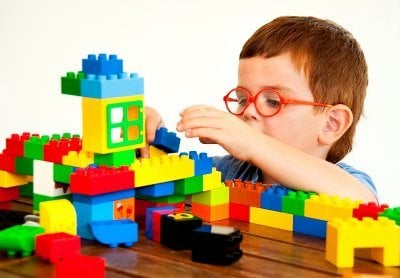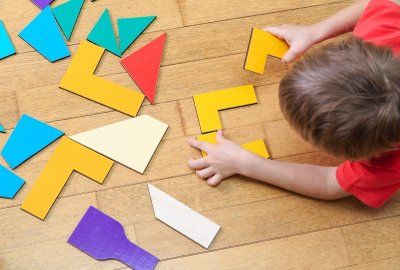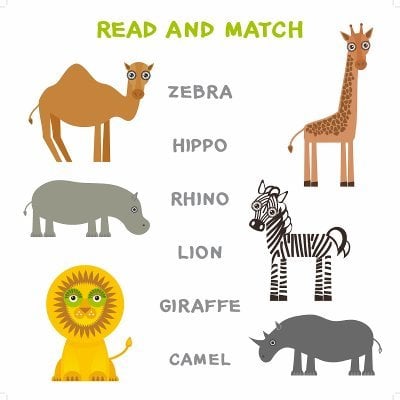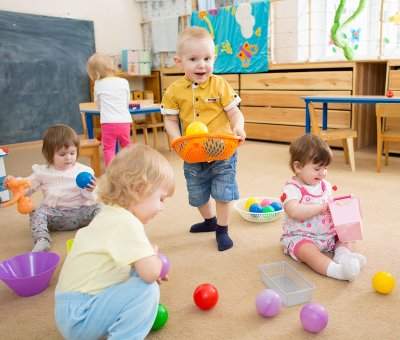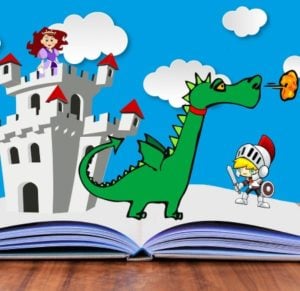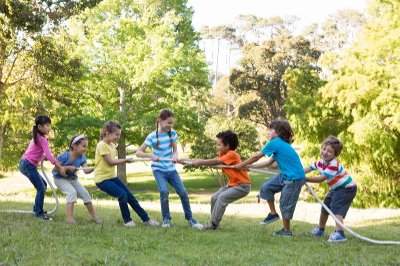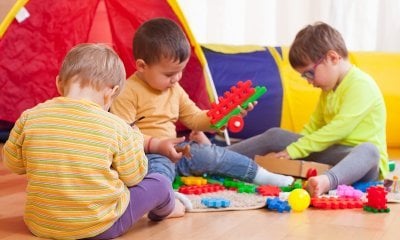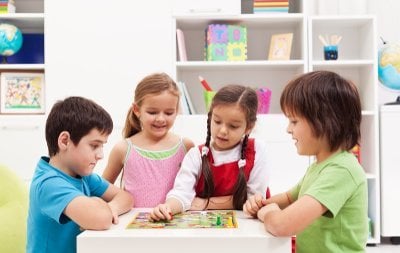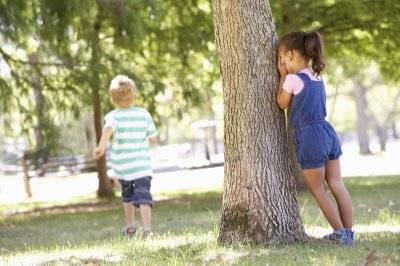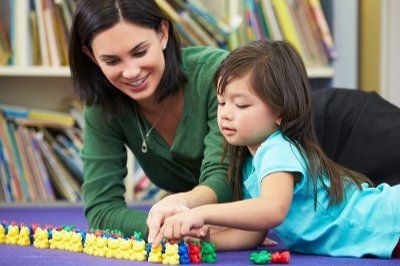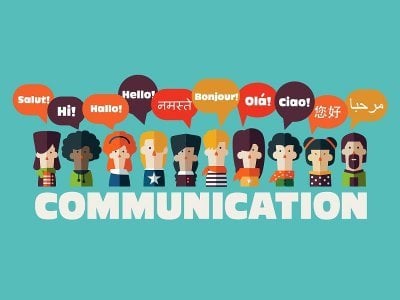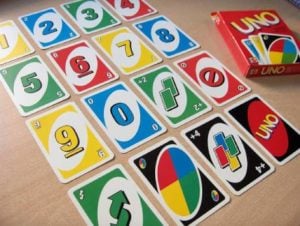Do you know how crucial it is to nurture your child’s brain before they turn 5?
“Experts tell us that 90% of all brain development occurs by the age of five. If we don’t begin thinking about education in the early years, our children are at risk of falling behind by the time they start Kindergarten.”
Learning is not limited to schools, books or boring activities. In fact- this is the best phase of your child’s education where both of you can have fun!
There is absolutely nothing wrong in teaching your 2-year-old animal names or alphabets, but there is an even better set of abilities that is so important to early brain development, helps toddler move towards picking valuable life skills and become better learners. This set of abilities has been named ‘Executive Function Skills’.
While Executive Function skills sounds like something out of an MBA curriculum, it isn’t all that new. Chances are you are already doing plenty to encourage these skills in your toddler. Executive Function skills largely focuses on:
- Attention: Sustaining focus and shifting it when the need arises.
- Impulse control: Thinking before acting and not always saying or doing the first thing that pops up in the mind.
- Working memory: Holding multiple thoughts in mind.
- Planning: Being able to chart and carry out a series of actions to achieve a goal and the ability to adjust plans if the need arises.
Kids well versed in EF skills were doing better in school 14 years later and showed fewer behavioral problems, and were more dependable and trustworthy. EF skills boost your kids’ brain and don’t just get them ready for school, they set them up for life!
Here we bring to you an exciting collection of activities for your little one’s brain boosting! Check out the last 5 to find special EF skill boosting activities!
26 MIND GAMES FOR KIDS: BRAIN BOOSTING (2-5 YR OLDS)
There is no time like now. Start with any activity that is handy and see how well developed your child will be in no time.
The games are in order of age suitability. Parents of toddlers can start with more personally engaging and visually appealing games.
ONE ON ONE GAMES
These games don’t require anything but your toddler and an object or your toddler and you.
1) BUILDING BLOCKS
Building Blocks are one of the oldest games that help children learn about gravity, leverage, size, shape, weight and balance. They are also the most easily available toy anywhere. As your kids grow, you can play games like ‘can you make what I make’ to encourage new ideas. From shape and colour recognition to creativity and mind stimulation, all facets of the child’s development are exposed.
2) PUZZLES
Puzzles are like Khichdi, all the flavours and nutrients in one pot. However, this is one game you need to start ASAP because an older child may ignore it for more exuberant ones.
This is one game though, you can’t risk missing. Right from hand-eye coordination to logical reasoning, it ticks all the right boxes. The biggest benefit is the confidence boost that comes from completing the puzzle which results in better self-esteem and deters procrastination.
3) MEMORY CARDS
Memory games are the best way to exercise your kids’ information detaining parts while having fun. The games are available as cards and also for smartphones & PCs so, you can keep them entertained on the go. Choose a comfortable level for your kiddo and encourage them to move on to bigger tiles or more images as they get better. Choose a game that has interesting features for your kid like different smileys, cartoon characters or hearts.
4) WORD HUNT
Use alphabet blocks or cards to form a word and let your kid match the word to its picture card. If you’ve set up the word CAT, your child must keep the picture of a cat near it. This encourages word formation, reading and expands vocabulary.
5) ROLE PLAY
Teacher-teacher, doctor-nurse or good witch-bad witch, the options are endless. Role-playing is a great way to boost creativity and imagination.
This game can also help set the right moral tone for your kids that will benefit them while dealing with society and adjust to the environment better.
6) BEADING/PLASTIC CANVAS SEWING
Beading and sewing are great fine motor skill developers and also act as a good workout for the brain. In beading, use colourful beads of different shapes and sizes and let your little one string them on a thread; switch the patterns up and set rules like three pink round beads after a purple star, which will keep your toddlers engrossed deeply. Plus, in the end, they also get a cute bracelet or a garland to happily show off!
If your kid is older, maybe 7 or 8, you can teach him/her to sew on a plastic canvas or an equivalent. Sewing with a plastic canvas does not require sharp needles and there’s no end to the design patterns you can make. Your kids will get to make wonderful bookmarks for themselves and as gifts, and you can level up to coasters and pouches further! It is a very engaging activity, requires them to follow patterns precisely, but easy instructions, and the results last for generations!
YouTube has a ton of videos on different plastic canvas stitches, so check out to keep your kid’s brain sharp and creative!
7) FIND THAT THING
All you need are some flashcards and objects that match them near the toddler. It is a fun way to introduce your toddler to the surroundings, be it at home, park or school.
For example, you show your child an image of a ball in the flashcard and ask them to find it for you. It goes a long way in teaching your child the right pronunciation and object recognition, along with cognitive development.
You can also say find 3 blue objects for a quick game without cards.
8) MAZES
Go left? Or Go Right? Turn back? Or Go Ahead? Mazes are a big hit with kids!
Mazes are an incredibly clever way to boost your kid’s brain while having fun. Mazes encourage logical reasoning, scanning and helps improve fine motor skills as they draw the solution over the winding pathways.
Advantages of making your child solve Mazes:
a) Visual Motor Skill Development: A maze requires that your child first scans his eyes throughout the page to try and figure out a solution. Scanning is a very important skill for reading and writing. b) Fine Motor Skill Development: A maze also requires that your child draws a line in between the maze (without touching the outer lines). That his, he needs to be able to control his pencil with his fingers. c) Problem Solving Ability: There is a problem – The Maze He needs to figure out a solution – Get into the maze and get out of it or reach the centre. How? – Find different paths Problem Solving Abilities are one of the most crucial skills required in everyday life.
9) MATCH THE FOLLOWING
This matching game works great for toddlers around 2 to 4. Grab a paper and draw some pictures in two columns. Let your kid match both sides with colorful crayons/ pencils. We usually pair things up like flower – honeybee, teapot – a teacup, rain – umbrella, tom – jerry, shoe – socks, candies – cavities, baby – diaper and so on.
If your child is not sure about a pair, this is a great opportunity to teach them about it (For example, honeybee is a match for flower because it feeds on the nectar). This game also helps remember and strengthen the concepts you taught them earlier. Get creative and vary the themes and do opposites or rhyming words as your toddler learns them. I also use phrases like thank you, sorry, please, and good night on one side and some relevant situations on the other side for my toddler to match.
If you are worried that your drawing skills are no good for such a game, try piecing images from the internet and print out to have fun! Let your kid color the images later as a bonus!
10) SENSORY PLAY
Sensory play with textures simulates kids and their brains. Exploring the world with our senses keeps our brains active and helps build new neural pathways. Textures teach something vital to kids that cannot be simply taught from books. Actually experiencing and actively goofing around with different textures is a delightful way to have fun and learn. Allow your kids to feel and play with crumbly sand, smooth plasticine, glittering slime, soft bubbles, foaming shaving cream, rough walls, fine clay and other everyday objects to stimulate their minds.
11) TREASURE HUNT
This is a favorite of my little ones. You have to hide a small treat someplace within the reach of your toddler and then give them flashcards of clues. For example, the first card might say, look under the pillow or simply a picture of a pillow with an arrow pointing to its underside, and your toddler will look under all pillows and find another card there to follow. At the end, they reach the treasure!
EXECUTIVE FUNCTION SKILL GAMES
1) STORY TELLING
Story telling engages different areas of the brain than what toddlers get from reading from a story book. When they are listening to a story, they are putting their working memory to full use to keep track of all the different characters and what has happened so far and keep processing new information as the events progress. It is an incredibly awesome exercise for that improves concentration, memory and focus, and such fun too!
2) DRAMATIC PLAYING
Pretend playing games are an excellent way to hone multiple areas of the little growing brains. When they are pretend playing, toddlers have to keep their and your role in mind, have to stay in character and they have to create plots to move the story forward, which encourages them to think flexibly.
3) PHYSICAL GAMES
Engaging their whole body gives a chance to reinforce Executive Function Skills in toddlers. Throwing and catching balls, jumping and running to a finish line and back are great in enhancing the brain. Games like Simon says, tug of war, ring around the Rosie or any other game that calls for kid’s attention to specific movement or body part on saying a specific word is also a great way to introduce inhibitory control. It teaches them self-control by requiring them to wait until that part of the song or game comes up.
4) FEELY BOXES
Put some familiar objects inside a box and have your kid stick his hand inside. He has to guess the object without seeing. This encourages them to actively feel the object and compare it to their data base of what objects feel like. This improves their working memory, neural pathways and sensory information.
5) MAKING COOKIES
We all know how kids love mucking with doughs! Depending on the levels of your little one’s dexterity and your tolerance for a messy home, direct your toddler to help you in your activities. Let them push the laundry buttons, segregate colors and whites or help make cookies. Following instructions or recipes make a kid work within parameters and understand the consequences if they don’t. They also have to closely follow rules – okay this step is done, what should I do next? – to keep going. This also helps them feel a sense of purpose that they are contributing their part to the family and makes them realize their own place in the big picture.
GROUP GAMES
While one on one games are a great way for a parent-child to bond, it is also important for children to develop their social skills. Apart from social skill development, group games teach a toddler sharing, empathy and improved communication skills. It’s the start of the path that leads to self-confidence.
On those lines- here are some group games that are not limited to a group of toddlers only. If you have a large family, make sure to have them join in as well.
1) BOARD GAMES
Snakes and Ladder, Ludo, Candy Land and Chess are some of the best board games ever. Board games teach PATIENCE – Your child HAS to wait for his turn. This is a virtue that comes in handy when you take your toddler to a restaurant and the fries ordered are taking time!
2) SIMON SAYS
Touch your feet, turn around, find the colour red, clap your hand, jump, wave your hand…the list can go on and on but your child won’t get tired of playing this game. Best played in a group with the rest as adults or slightly older children, this will help improve listening skills and interpretation skills, leading to better social development.
All you need to do is give your child some commands beginning with the words ‘Simon says dance or jump’ and the toddler has to follow to get points. If you give the command without beginning with Simon says, and the child follows, he loses points. The one with the highest score at the end wins.
3) THE HOKEY POKEY
Technically a song and dance routine, it fulfils all the categories of a fun, stimulating game. This song is great for learning about body parts and movements. You can also come up with variations of your own to keep it interesting to match your child’s skill level. You will find many versions of this on YouTube.
4) HIDE AND SEEK
Hide and seek is such a fun game for everyone! You need to hide and ask your child to find you or vice versa. The more people that are involved, the better. Apart from the physical exercise, this game makes your child think of places to both hide and search. It helps develop problem-solving skills and object analyses at an early stage.
5) MUSICAL NUMBERS
Place a group of objects of different quantities across the room. For example, one ball, two flip flops, 3 cars, 4 books and so on, in random order. The kid can run around the objects. When the music stops, the kid stops and pulls out the correct number card corresponding to the number of objects he is standing close to.
6) STATUE
Another classic game that has travelled the globe that provides ample stimulation is Statue, also known as Freeze. It’s a simple, no investment game where music is playing in the background and the children need to keep moving and performing a different action. When the music stops, they need to be still in different poses. The first one to move is out. This game is best played in a group. The plus point of this game is it can be played anywhere and it builds team spirit and imagination.
To make the game more interesting, call out a theme just after the music stops and the child least matching can be out.
For example – the word said is ‘Mom.’ The children should freeze in various poses of what they think their mom is like. The list can go on with dad, sister, animal, etc. It’s a fun way to develop their social skills and gauge their observational powers.
7) NEW LANGUAGES
DID YOU KNOW? If your child speaks 2 or more languages (other than English), he is more likely to be better at spelling and grammar, because he can understand patterns better which makes it easier for him to understand and remember the rules of the language.
A child up to 6 years of age is the best learner and observer.
He is learning every second from his surroundings. Exposing him to different languages will boost his abilities to learn new things throughout life.
It will activate both the right and the left areas of the brain equally and such kids will have better learning and grasping powers than otherwise.
(Also see, 11 Tips for teaching Grammar early) Teaching different languages is one of the BEST BRAIN BOOSTERS till the age of 5.
8) TOUCH THE COLOR
One player calls out a color’s name and everyone runs and touches an object of that color. The one who fails should call out the color name next. Its a super easy game to play engage a group of kids at home. Just be watchfull, your kids are going to running around a lot.
9) CREATIVITY & COMMUNICATION
These activities are more like skill enhancers. It’s a window to the future. You can unlock your child’s potential here by introducing them to their inborn talent or building on their inclinations.
Below are various ways to find your child’s potential or build one!
SINGING – Singing stimulates and develops the positive centres of the brain and it also needs memorising the songs which is a great boost.
DANCING – Dancing improves the coordinating capabilities of the brain + motor skills + socialisation and confidence.
HAND OR FINGER PAINTING – Fun, colourful, creative and imaginative (Need I say more)?
MUSICAL INSTRUMENT TOYS – The sounds created are like nirvana for the brain. Your child is the one to create that music. It’s a great way to nurture emotional skills, IQ and social skills. Motor skills also come into play here.
This can also lead to serious learning of an instrument which is a great way for a child to learn discipline and patience.
The only side effect is neighbours complaining of loud noises!
READING STORY BOOKS – The best way to develop language and communication skills.
I thank my aunt for spending money on introducing some great storybooks to me. I read all the classic stories in one of those huge storybooks with pictures and that helped me ace English all through school and college.
Reading is the best way to build your imagination and one of the strongest foundations of CREATIVITY.
10) UNO
Uno is an entertaining card game for both kids and adults. It’s a fun way to bring the family together every day. The rules of the game are simple, yet powerful, allowing your little one to plot mischievous plans to kick others out. Some version of Uno cards also have different editions featuring lovable characters, so you might want to check them out to make the game extra special! We have a pack of Minion Uno 4cards and it’s always a fun activity during cousin sleepovers, vacation and travels for both us and the kids!
CONCLUSION
It is not that these individual activities are magical. They don’t grant your kid an instant increase in brain power –brain power develops gradually throughout childhood until adolescence. Even a simple activity like coloring requires sustained attention that can play a great role in shaping your kid’s brain if they enjoy it. What all these activities have in common is they are using their minds, bodies and senses at the same time and figuring out how to use them to make things happen. That is the most important goal! So, pick out all the games that your little one loves playing with you and have fun!
